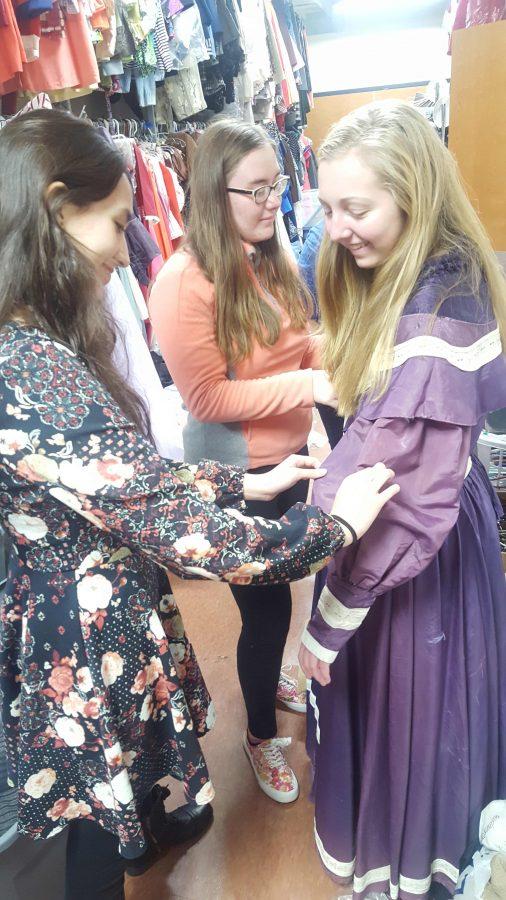Meet BC’s fashionista Victoria Lopez
Walking through the halls of BC, it’s hard to not notice Victoria Lopez. She is composed and confident. Lopez has style, but she doesn’t just stick to the trends, rather she takes the current trends and tailors them to suit her personality. “Instead of following the crowd, you look at the crowd, point out what you like that’s specific to you, and then you express yourself,” she explains. Right now, Lopez is enjoying the “fun throwback” of black chokers in which she integrates into her own outfits.
When asked about her favorite historical periods of fashion, Victoria Lopez’s face lit up. She said that it would be hard to choose. She cannot decide between Renaissance and Rococo. Renaissance fashion, she says, was the introduction to a more modern era which brought in different clothing styles, whereas Rococo has a more nostalgic, extravagant element to it as seen in the pastel color palette and intricate details that Rococo fashion is known for. Fashion and its history fascinate Lopez. With this passion, it only makes sense that she will be performing a poem titled Fashion before BC premiers this year’s One Act play. Her poem will be centered around the evolution of French fashion throughout history, highlighting key historical moments and changes.
The play is about an American family in the mid-1800s who becomes infatuated with French fashion and ultimately allow their vanity to effect their personal lives. Lopez believes that are two sides to fashion: one side is vanity in which the play explores, and the other side is the freedom that fashion offers a person to express their personality and ideas. Lopez is also interested in how society can be best depicted in styles of clothing. She best thinks of fashion in the words of Oscar Wilde, “Fashion is a form of ugliness so intolerable that we have to alter it every six months.” Now, although Lopez thinks of fashion in high regards, she cannot ignore the hideous side to it.
Like the circumstances outlined in the play, Lopez has noticed certain parallels between the fiction and reality. She has not failed to notice the corruption that goes on in the industry from sweatshops to body image issues; the fashion industry causes deep pain around the world.
“I don’t like it when companies take advantage of people across the world with cheap clothes. I think that’s something that our society and people who are interested in fashion, should be aware about. Because it’s great to be fashionable and be able to have clothes that look like they have a lot of quality put into them, but when they’re made by people who are basically slaves, I don’t think that’s right.” The prevalence of sweatshops had not occurred to her so much until she watched Made in Bangladesh in her AP Micro class. The images she saw really struck her. “I was like ‘Crap! What if all these nice, fun clothes I love so much were made by people who are living and working in unsafe environments?’ I don’t want to promote that so I’m definitely not shopping at Wal-Mart anytime soon for clothes.”
It saddens Lopez to see the fashion industry shame and warp the perception of the public on desired body types. Photoshop is one tool that Lopez disagrees with seeing as it doesn’t show authenticity, a trait that she highly values. She recalls a moment recently where she became frustrated with the use of Photoshop. “I was looking at a website called Chime for Change which was supposed to be a woman’s rights sort of organization, but when I was looking at the photos, it’s sponsored by Beyonce and another celebrity, and the photos were all obviously photoshopped. And it’s like; if you want me to feel better about myself and make me feel more independent, don’t tell me that people need to be photoshopped. I should just be myself.”
In her own life, Lopez tries to observe the freedom fashion can give an individual and promote body positivity. This year she plans to help the sewing club at Wisconsin Hills and participate in activities and to help create original pieces for the fashion show. Additionally, Lopez aims to teach people that fashion isn’t meant to make people feel negative about themselves or others; rather it is a way to express and celebrate one’s true self.
“I think it’s an underlying theme that applies to the play where people are putting their value of vanity and looking better than other people above the simple morals of treating other humans with kindness.”




